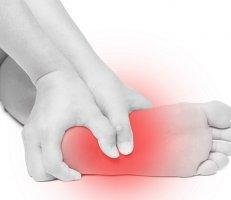
Dementia Specialist
Roughly five million adults live with Alzheimer’s disease or related dementias. Memory loss, impaired cognition, language difficulties, and other dementia symptoms can eventually prevent dementia patients from living independently.
Steve-Felix Belinga, MD, and his outstanding team at The Belinga Clinic help reduce dementia symptoms and slow its progression so you or your loved one can continue to enjoy an active, independent life.
To schedule a dementia evaluation, call the clinic in Fort Smith, Arkansas, or request an appointment online.
Dementia Q & A
What is dementia?
Dementia refers to a group of conditions that lead to problems with memory, language, and cognitive abilities. Dementia can also affect your moods, behavior, and emotional responses. It’s more severe and debilitating than mild memory loss that often occurs with age.
What causes dementia?
Many conditions cause dementia symptoms. These include:
Alzheimer’s disease
Alzheimer’s disease, the most common form of dementia, doesn’t have a single, known cause, although genetic factors appear to contribute to the condition. It causes protein clumps called plaques and fibrous tangles in the brain, which interfere with neural activity.
Vascular dementia
The second most common type, vascular dementia, occurs when the blood supply to the brain is interrupted. Usually, the cause is a stroke or head trauma.
Lewy body dementia
Abnormal protein clumps called “Lewy bodies” cause this condition. It results in symptoms such as visual hallucinations, attention problems, and physical tremors or rigidity.
What are the symptoms of dementia?
Common signs and symptoms of dementia include:
- Forgetfulness or memory loss
- Inability to learn new things
- Language problems
- Inability to complete tasks
- Behavioral changes
The most common types of dementia progress over time, leading to worsening symptoms that may result in the inability to care for yourself or communicate with others.
How does a doctor diagnose dementia?
Dr. Belinga can diagnose dementia in the early stages, which means you can take steps to slow down its progression. He reviews your medical history and symptoms and performs a physical exam. He may order blood work and brain imaging, such as a CT scan, to rule out other causes of your symptoms.
Neurological and cognitive tests help Dr. Belinga assess your memory, language skills, reasoning, and general mental and neurological wellness.
How is dementia treated?
Treatment depends on the type of dementia, your health history, and other individual factors. There’s no cure for dementia, but management can help reduce symptoms and slow the disease progression.
Dr. Belinga designs a custom management plan that may include medication, physical or occupational therapy, and lifestyle changes.
Finding out that you or someone you love has dementia can feel like a shock. An experienced physician like Dr. Belinga can help you learn to live with dementia so you can retain your long-term quality of life. To schedule an evaluation, call The Belinga Clinic today, or book an appointment online.
Request an Appointment







